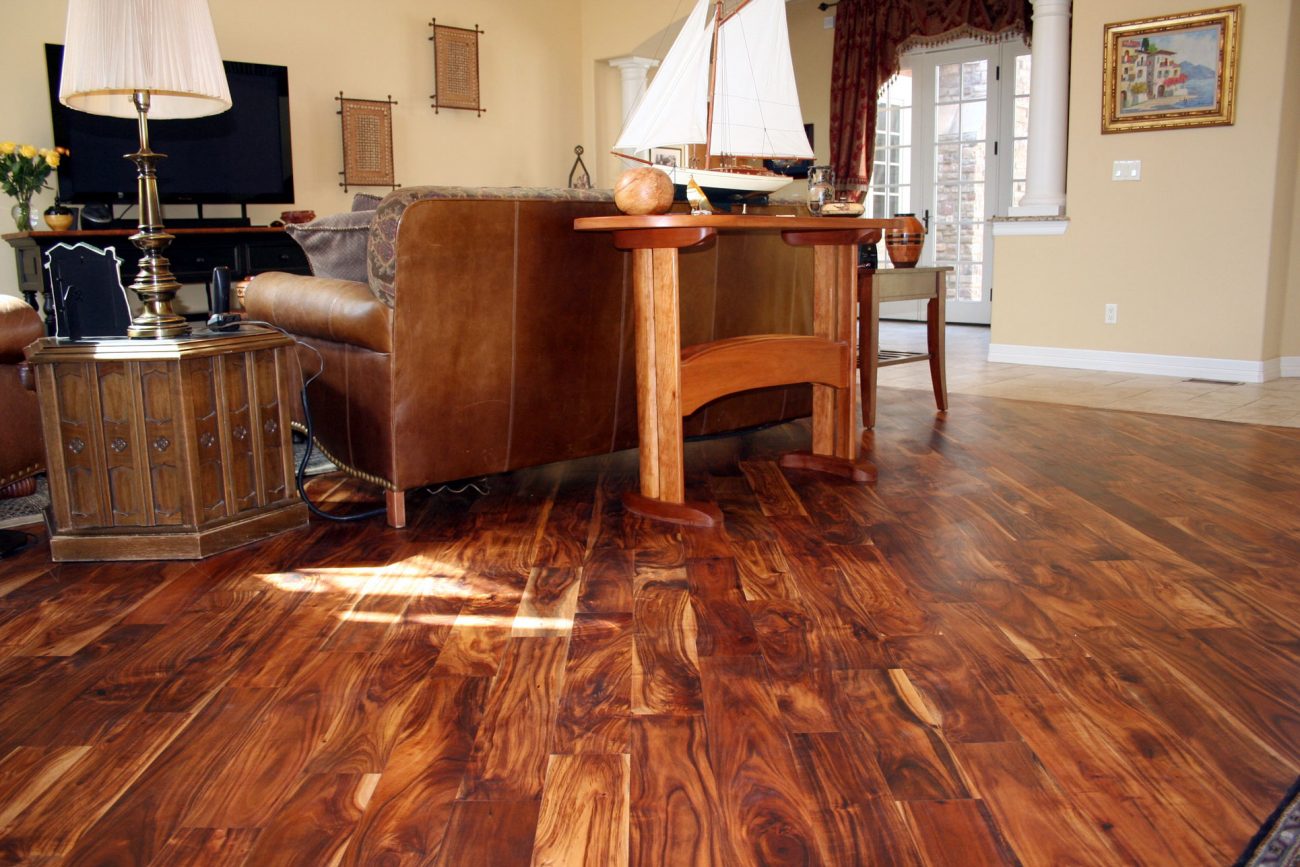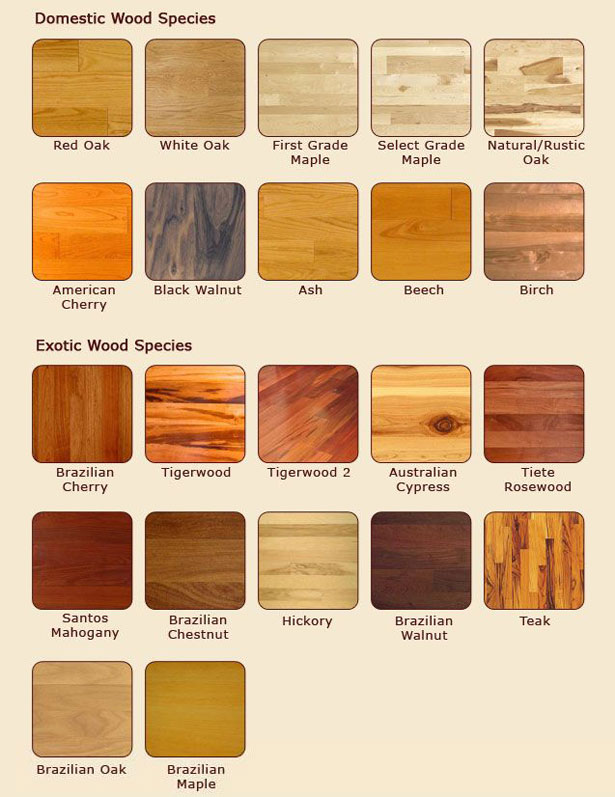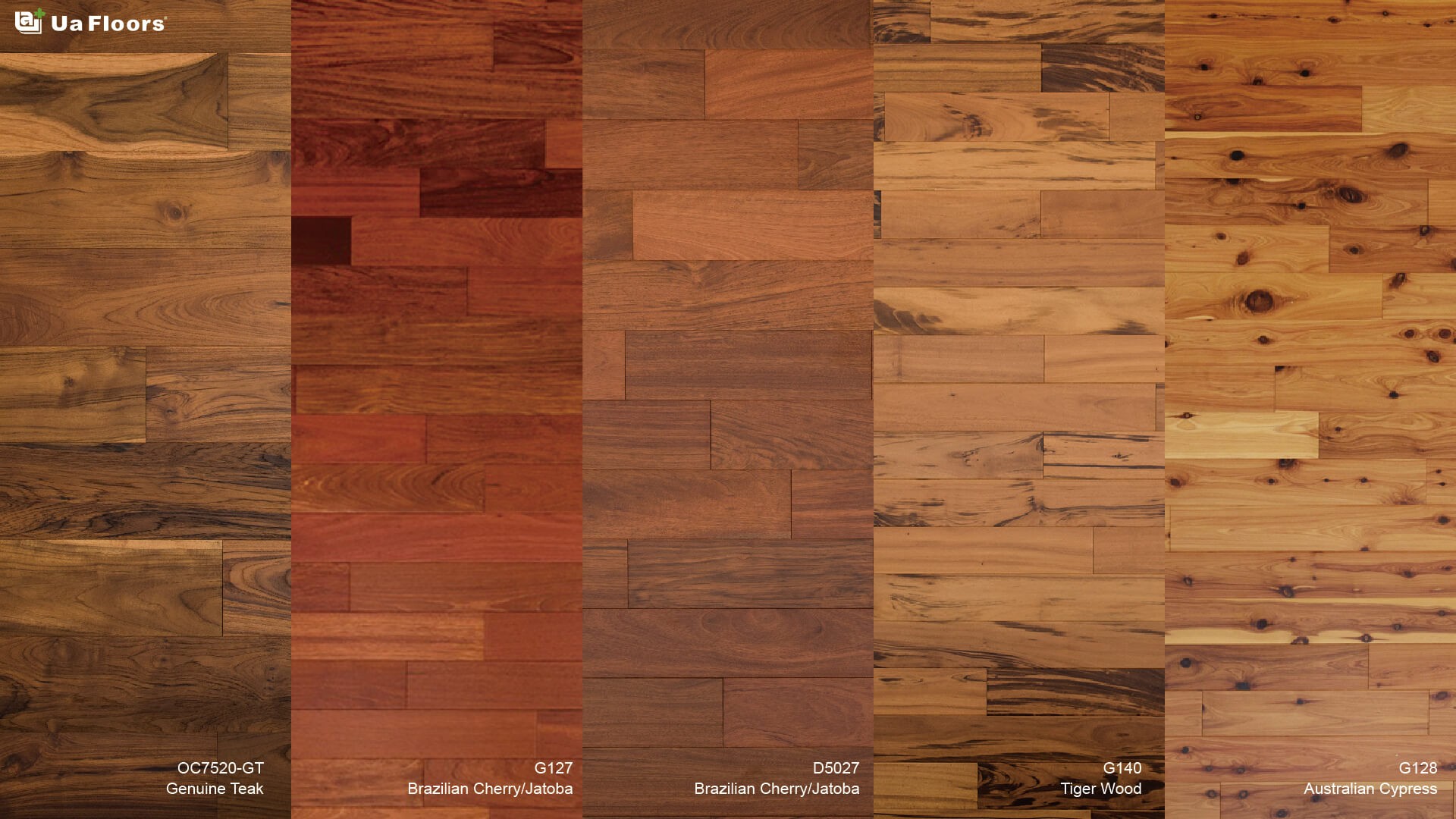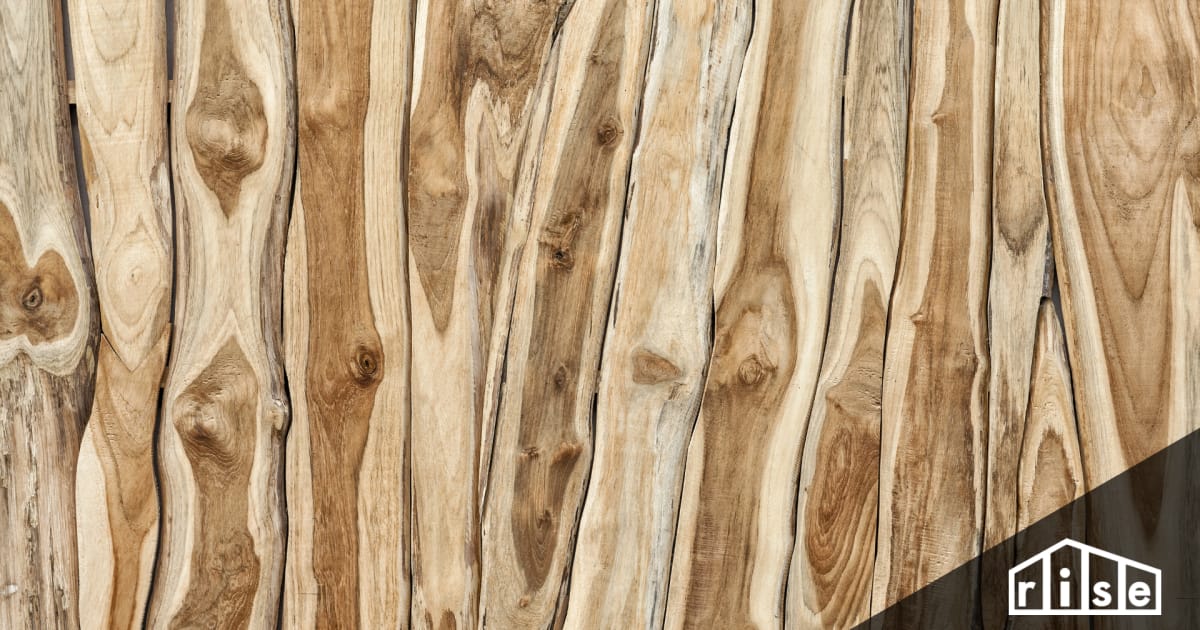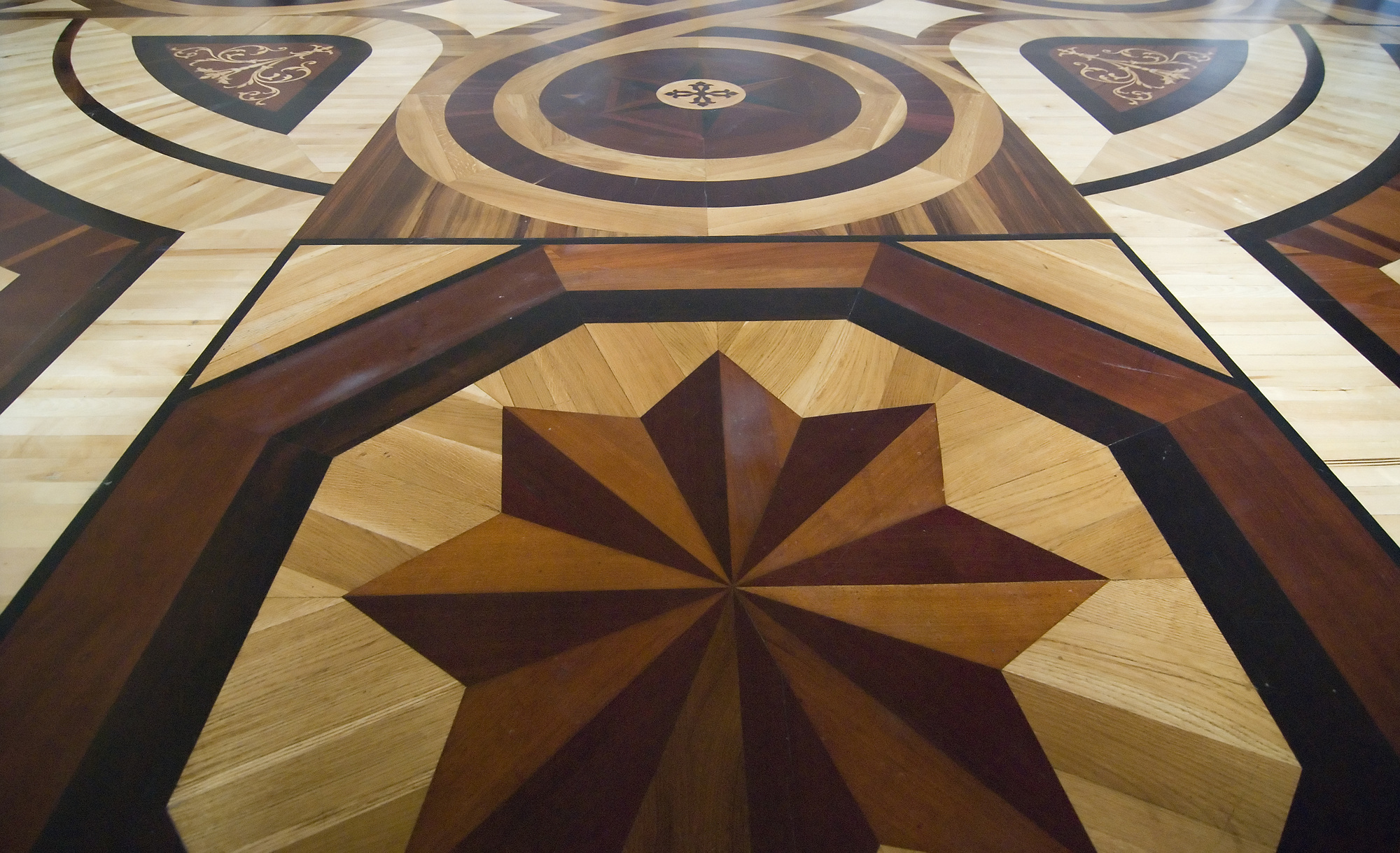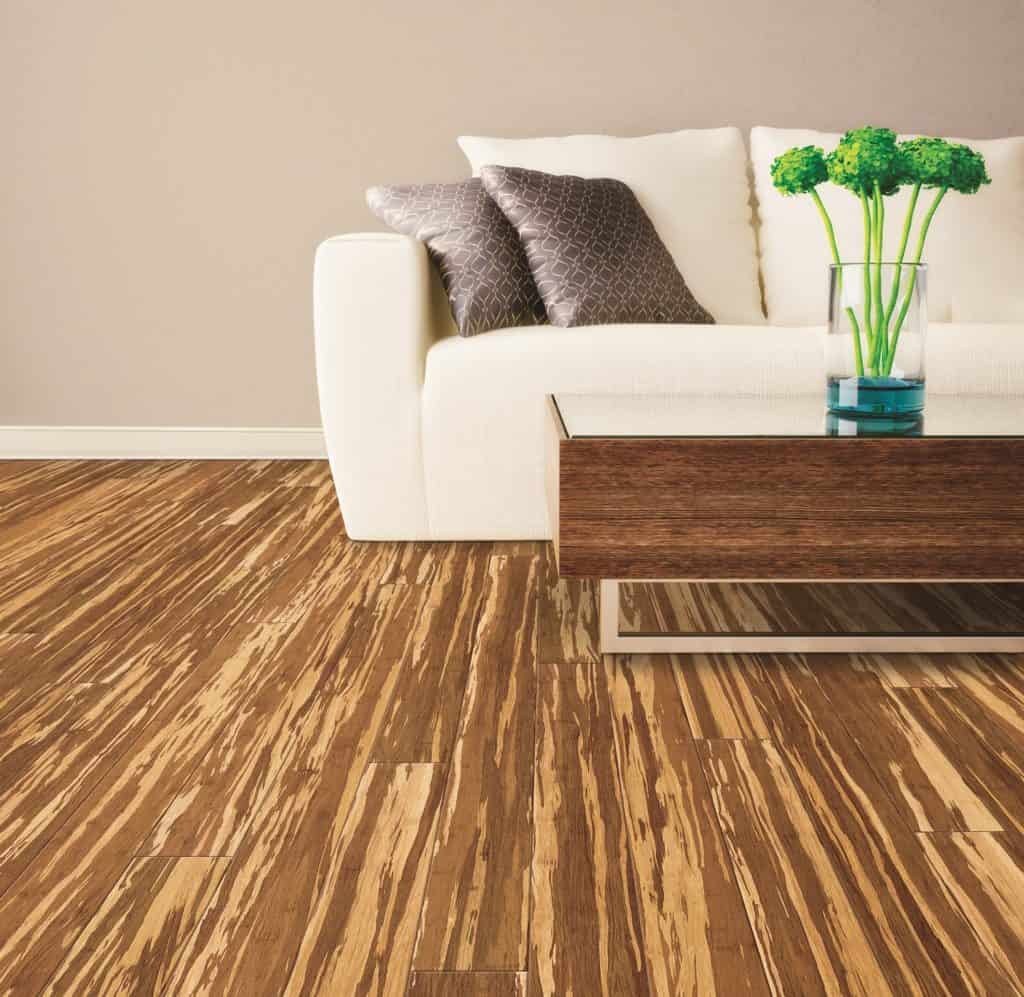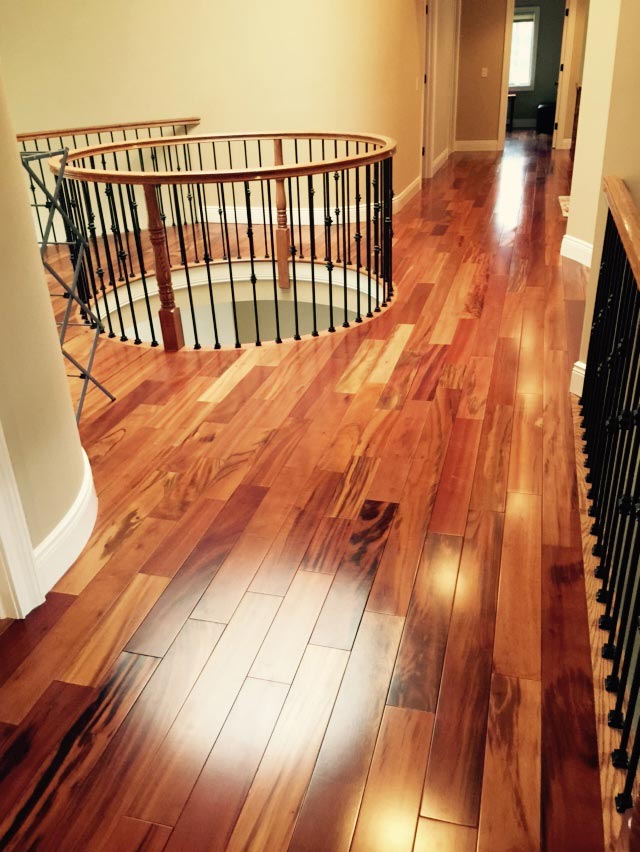What is Exotic Hardwood Flooring?
Exotic hardwood flooring is a premium flooring option prized for its exceptional beauty, durability, and rarity. Sourced from regions around the globe, exotic hardwoods are known for their distinctive grain patterns, vibrant colors, and unique characteristics that set them apart from domestic hardwood species. This flooring type has become a symbol of luxury and sophistication, making it a popular choice for homeowners seeking to elevate their interiors. Here’s an in-depth look at exotic hardwood flooring and what makes it so special.
- Defining Exotic Hardwood Flooring
Exotic hardwood flooring refers to wood sourced from tropical or non-native regions, such as South America, Africa, and Asia. Unlike domestic hardwoods like oak, maple, or hickory, exotic hardwoods include species like Brazilian cherry, tigerwood, and teak. These woods are renowned for their density, rich hues, and intricate patterns, offering a distinctive look that is hard to replicate with domestic options. - Unique Visual Appeal
One of the main attractions of exotic hardwood flooring is its visual appeal. Each plank of wood showcases unique grain patterns and colors that range from deep reds and purples to golden yellows and rich browns. These striking aesthetics allow exotic hardwood floors to serve as a focal point in any room, enhancing the overall ambiance of the space. - Superior Hardness and Durability
Exotic hardwoods are often much denser and harder than domestic species, making them highly resistant to scratches, dents, and wear. This durability ensures that the flooring maintains its beauty over time, even in high-traffic areas. For homeowners seeking a long-lasting investment, exotic hardwoods are a top contender. - Exclusivity and Luxury
The rarity of exotic hardwoods adds to their appeal. Many of these species are sourced from remote areas and are available in limited quantities, giving your home an exclusive and luxurious feel. This exclusivity also contributes to their higher price point, making them a status symbol in interior design. - Versatility in Interior Design
Exotic hardwood flooring complements a wide range of design styles, from modern and minimalist to traditional and rustic. Its natural beauty and variety of hues make it an excellent choice for creating unique and personalized spaces that reflect your taste. - Environmental Considerations
It’s important to note that the sourcing of exotic hardwoods can have environmental implications. Sustainable forestry practices and certifications like FSC (Forest Stewardship Council) are crucial when selecting exotic hardwood flooring to ensure that your choice is environmentally responsible.

The Most Popular Types of Exotic Hardwoods and Their Characteristics
Exotic hardwoods are available in a wide variety of species, each with its unique characteristics that cater to different aesthetic and functional needs. These woods not only enhance the visual appeal of your flooring but also offer distinct benefits in terms of durability and performance. Here are some of the most popular types of exotic hardwoods and what makes them stand out.
Brazilian Cherry (Jatoba)
Brazilian cherry is one of the most sought-after exotic hardwoods, known for its rich reddish-brown tones and striking grain patterns. It is incredibly dense and durable, making it ideal for high-traffic areas. Over time, its color deepens, adding to its charm and elegance.
Tigerwood
True to its name, tigerwood features bold, tiger-like stripes in its grain, creating a dramatic and eye-catching appearance. Its natural hues range from golden orange to deep brown. In addition to its visual appeal, tigerwood is highly resistant to wear, making it a practical choice for both residential and commercial spaces.
Teak
Teak is prized for its golden-brown tones and natural oil content, which makes it resistant to moisture, decay, and insects. This durability makes teak an excellent choice for areas prone to humidity, such as bathrooms and kitchens, or even outdoor applications.
Mahogany
Known for its deep, reddish-brown color and smooth texture, mahogany exudes sophistication and warmth. It is less dense than some other exotic hardwoods, which makes it easier to work with during installation, yet it remains durable enough for everyday use.
Ipe (Brazilian Walnut)
Ipe is one of the hardest and densest exotic hardwoods, offering unparalleled durability and resistance to scratches and moisture. Its dark brown tones and subtle grain patterns make it a popular choice for luxurious interiors and outdoor decking.
Acacia
Acacia is a versatile hardwood that comes in a variety of shades, from light amber to deep brown. Its wavy grain patterns add character and charm, making it a popular choice for rustic and eclectic interiors. Acacia is also eco-friendly, as it is often harvested from fast-growing plantations.
Benefits of Choosing Exotic Hardwood Flooring for Your Space
Choosing exotic hardwood flooring comes with a host of benefits that go beyond aesthetics. Its unique qualities make it an excellent investment for homeowners and businesses seeking durability, beauty, and value. Let’s explore the advantages that exotic hardwood flooring brings to your space.
Unmatched Aesthetic Appeal
Exotic hardwood flooring offers unparalleled beauty, with its rich colors, striking grain patterns, and natural luster. These features allow you to create a one-of-a-kind space that stands out. Whether you’re designing a cozy living room or an elegant office, exotic hardwood can set the tone for sophistication and style.
Exceptional Durability
Exotic hardwoods are renowned for their hardness and density, which makes them highly resistant to scratches, dents, and general wear. This durability ensures that your flooring remains beautiful for decades, even in high-traffic areas.
Increased Property Value
Installing exotic hardwood flooring can significantly enhance the value of your property. Its luxurious appeal and long-lasting nature are attractive to potential buyers, making it a worthwhile investment if you plan to sell your home in the future.
Sustainability and Eco-Friendly Options
Many exotic hardwoods are harvested sustainably, with certifications like FSC ensuring responsible sourcing. By choosing certified exotic hardwoods, you can enjoy the beauty of these rare materials while supporting environmental conservation.
Resistance to Moisture and Decay
Certain exotic hardwoods, like teak and ipe, have natural oils that make them resistant to moisture, decay, and insect damage. This makes them ideal for humid environments or outdoor applications, where other flooring materials might fail.
Versatility in Applications
From residential spaces to commercial properties, exotic hardwood flooring is versatile enough to suit various applications. Its wide range of colors and textures allows it to complement diverse interior design styles, ensuring a perfect fit for any space.
Challenges and Considerations When Installing Exotic Hardwood Flooring
Exotic hardwood flooring is a stunning and durable choice, but its installation process comes with specific challenges that require careful consideration. Understanding these challenges can help you plan better and ensure a successful project. From sourcing to acclimatization and professional expertise, here’s a comprehensive look at what you need to know before installing exotic hardwood flooring.
Cost and Budget Constraints
One of the primary challenges of exotic hardwood flooring is its higher cost compared to domestic options. These materials are often more expensive due to their rarity and the logistics involved in sourcing them from abroad. Additionally, the installation process can be more costly as it often requires skilled labor. It’s essential to factor in these costs when budgeting for your project.
Acclimatization Requirements
Exotic hardwoods are sensitive to changes in humidity and temperature, making acclimatization a crucial step before installation. The wood needs to be stored in the installation area for several days to adjust to the environment. Failing to acclimate the wood properly can lead to expansion, contraction, or warping after installation.
Specialized Installation Techniques
Exotic hardwoods are typically denser and harder than domestic species, which makes them more challenging to cut, nail, or glue during installation. Specialized tools and techniques are often required, and hiring a professional with experience in exotic hardwood flooring is highly recommended to avoid mistakes.
Sourcing and Sustainability Concerns
Ensuring the wood is sourced sustainably is another consideration. Exotic hardwoods are often harvested from tropical rainforests, and irresponsible logging can contribute to deforestation. Look for suppliers that offer Forest Stewardship Council (FSC) certification to ensure ethical and eco-friendly sourcing.
Potential for Color Change Over Time
Some exotic hardwoods, like Brazilian cherry, are known to darken over time when exposed to sunlight. While this natural aging process can add character, it may also affect your initial design expectations. Using window treatments or UV-resistant finishes can help mitigate this effect.
Maintenance and Long-Term Care
While exotic hardwoods are highly durable, maintaining their beauty requires consistent care. Specialized finishes may be needed to protect the wood, and refinishing may be more labor-intensive due to its hardness. Being aware of these maintenance requirements is critical for long-term satisfaction with your flooring.
Maintenance Tips to Preserve the Beauty of Exotic Hardwood Floors
Exotic hardwood floors are an investment in both beauty and durability, but preserving their allure requires proper care and maintenance. Regular upkeep not only keeps the wood looking vibrant but also extends its lifespan. Here are practical tips to help you maintain the pristine condition of your exotic hardwood flooring.
Regular Cleaning Routine
Dust and debris can act as abrasives, scratching the surface of your hardwood flooring. Use a soft-bristle broom or a vacuum with a hard floor attachment to clean the floors daily. Avoid using vacuums with rotating brushes, as these can damage the wood.
Damp Mopping with Caution
While exotic hardwoods are often resistant to moisture, excessive water can still cause damage. Use a damp, not wet, microfiber mop with a wood-safe cleaner to remove dirt and grime. Avoid harsh chemicals or abrasive cleaning tools that can strip the finish or scratch the surface.
Preventing Scratches and Dents
Placing felt pads under furniture legs and using area rugs in high-traffic zones can help prevent scratches and dents. Encourage family members and guests to remove shoes, especially high heels, which can damage the wood. For pet owners, keeping pets’ nails trimmed is also essential.
Protecting Against Sunlight
Exotic hardwoods can be sensitive to UV rays, which may cause fading or darkening over time. Use curtains, blinds, or UV-protective window films to shield your floors from direct sunlight. Rotating rugs and furniture periodically can also help distribute any color changes more evenly.
Using Proper Finishes and Sealants
Applying a high-quality finish can enhance the wood’s natural beauty and protect it from wear. Depending on the type of hardwood and its use, you may need to reapply the finish every few years. Oil-based finishes are ideal for enhancing rich colors, while water-based options provide a clear, protective layer.
Professional Refinishing as Needed
Over time, your exotic hardwood flooring may require refinishing to restore its original luster. This process involves sanding down the surface and applying a new finish. Given the density of exotic hardwoods, it’s best to hire a professional for this task to avoid uneven sanding or damage.
Comparing Exotic Hardwood Flooring to Domestic Hardwood Options
When choosing between exotic and domestic hardwood flooring, it’s essential to understand how they differ in terms of aesthetics, performance, and cost. Both options have their strengths and drawbacks, and the decision ultimately depends on your specific needs and preferences. Here’s a detailed comparison to help you decide.
Aesthetic Differences
Exotic hardwoods are known for their bold colors and unique grain patterns that are rarely found in domestic species. Brazilian cherry, tigerwood, and mahogany, for example, offer rich, deep tones that stand out. Domestic hardwoods, such as oak and maple, provide a more traditional look with softer hues and subtle grains, making them versatile for classic interiors.
Durability and Hardness
Exotic hardwoods generally have a higher Janka hardness rating, which means they are more resistant to scratches and dents. This makes them ideal for high-traffic areas or spaces with heavy furniture. Domestic hardwoods, while durable, are often less dense and may require more frequent refinishing in busy households.
Cost Considerations
Exotic hardwoods tend to be more expensive due to their rarity and import costs. Domestic hardwoods are typically more affordable and readily available, making them a practical choice for budget-conscious homeowners.
Environmental Impact
Domestic hardwoods are often sourced locally, which reduces transportation emissions and supports sustainable forestry practices. Exotic hardwoods, on the other hand, require careful vetting to ensure ethical sourcing. Certifications like FSC can help ensure responsible harvesting.
Maintenance Requirements
Both exotic and domestic hardwoods require regular cleaning and care, but exotic species may need specialized finishes or sealants to protect their unique properties. Domestic hardwoods are often easier to refinish and repair, making them more convenient for DIY maintenance.
Versatility in Applications
While domestic hardwoods blend seamlessly with traditional and modern designs, exotic hardwoods are often chosen for their ability to create bold, statement-making interiors. If you’re aiming for a dramatic, luxurious look, exotic hardwoods may be the better choice.
Is Exotic Hardwood Flooring the Right Choice for Your Home?
Deciding whether exotic hardwood flooring is the right option for your home involves a careful assessment of your priorities, lifestyle, and budget. While it offers unparalleled beauty and durability, exotic hardwood flooring may not suit every homeowner’s needs. To make an informed decision, consider the following key factors.
Your Home’s Aesthetic and Design Goals
Exotic hardwood flooring is an excellent choice if you’re aiming for a luxurious, high-end look. Its rich colors and striking grain patterns create a statement that enhances the overall ambiance of any room. If your design vision includes bold or unique flooring that serves as a focal point, exotic hardwood is likely a good match. However, for homes with a more understated or traditional style, domestic hardwoods might blend in more seamlessly.
Lifestyle and Traffic Levels
The durability of exotic hardwood flooring makes it ideal for homes with heavy foot traffic, pets, or children. Its hardness resists scratches and dents better than many domestic options. However, it’s essential to weigh this durability against the risk of moisture exposure, as excessive humidity or water spills can still cause damage over time. If your home has rooms prone to high moisture, such as basements or bathrooms, ensure that the chosen exotic wood is moisture-resistant or treated appropriately.
Budget Considerations
Exotic hardwood flooring is generally more expensive than domestic alternatives due to its rarity and transportation costs. Beyond the material cost, installation can also be pricier because of the specialized tools and expertise required. If you’re working with a tight budget, consider whether the aesthetic and durability benefits justify the higher investment. For cost-conscious homeowners, exploring engineered versions of exotic hardwoods may provide a more affordable yet equally beautiful alternative.
Maintenance Expectations
Exotic hardwood flooring requires a consistent maintenance routine to preserve its beauty. Regular cleaning, protective finishes, and precautions against sunlight and moisture are crucial. If you’re prepared to commit to these maintenance tasks, exotic hardwood can reward you with a stunning, long-lasting floor. However, if low-maintenance flooring is a higher priority, alternatives like laminate or vinyl with exotic wood visuals might be worth considering.
Environmental and Ethical Sourcing
Sustainability is an important factor when choosing exotic hardwood flooring. Irresponsible logging practices can contribute to deforestation and environmental degradation. If environmental responsibility is a priority for you, look for products with certifications like FSC, which ensure the wood has been harvested sustainably. Additionally, some exotic species are more eco-friendly than others due to faster growth rates or plantation sourcing.
Long-Term Value and Resale Potential
Exotic hardwood flooring can add significant value to your home. Its luxurious appeal and durability make it a desirable feature for potential buyers, potentially increasing resale value. If you view flooring as a long-term investment, exotic hardwood’s ability to maintain its beauty over decades makes it a strong candidate. However, consider whether the specific exotic species and its design will remain timeless or risk becoming dated over time.
What You Need to Know to Finish Your Exotic Hardwood Floor
Choosing Between European And Exotic Wood Flooring
How to Choose Exotic Woods for Your Home – Global Wood Source
Hardwood Flooring That Excites – Builders Surplus
Exotic Wood Flooring Hardwood Flooring
Related Posts:
